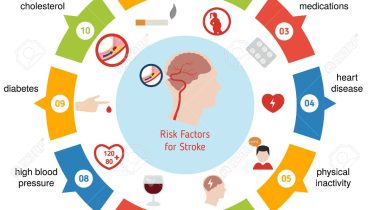In the realm of healthcare, bone health and osteoporosis prevention have emerged as critical topics, particularly as populations age and sedentary lifestyles become more prevalent. Osteoporosis, characterized by fragile bones and increased susceptibility to fractures, poses significant challenges to individuals and healthcare systems worldwide. However, with the right knowledge and proactive measures, individuals can take steps to maintain strong bones and reduce their risk of osteoporosis. This article delves into the intricacies of bone health, explores factors influencing bone density, and provides actionable strategies for prevention.
Understanding Bone Health:
Bones serve as the framework of the human body, providing structural support, protecting vital organs, and facilitating movement. Beyond their mechanical functions, bones also act as reservoirs for essential minerals such as calcium and phosphorus, crucial for various physiological processes. Bone health is contingent upon a delicate balance between bone formation and resorption, processes regulated by osteoblasts (bone-building cells) and osteoclasts (bone-resorbing cells), respectively.

Factors Influencing Bone Density:
Several factors influence bone density and susceptibility to osteoporosis:
Nutrition: Adequate intake of calcium, vitamin D, and other micronutrients is vital for maintaining optimal bone health. Calcium-rich foods include dairy products, leafy greens, and fortified foods, while vitamin D can be obtained through sunlight exposure and supplementation.
Physical Activity: Weight-bearing exercises and resistance training stimulate bone formation and help preserve bone density. Regular exercise also enhances coordination and balance, reducing the risk of falls and fractures, especially in older adults.
Hormonal Balance: Hormones such as estrogen and testosterone play crucial roles in bone metabolism. Declines in estrogen levels during menopause contribute to accelerated bone loss in women, highlighting the importance of hormone replacement therapy when appropriate.
Lifestyle Factors: Smoking, excessive alcohol consumption, and prolonged use of certain medications (e.g., glucocorticoids) can adversely affect bone health. Quitting smoking, moderating alcohol intake, and discussing medication alternatives with healthcare providers are essential steps in mitigating these risks.
Genetics: Genetic predispositions influence bone density and fracture risk. Understanding one’s family history can provide valuable insights into individual susceptibility to osteoporosis.
Prevention Strategies:
Empowered with knowledge about bone health, individuals can adopt proactive measures to prevent osteoporosis and maintain strong bones throughout life:
Balanced Diet: Prioritize a diet rich in calcium, vitamin D, and other nutrients essential for bone health. Incorporate dairy products, leafy greens, fortified foods, and supplements as needed to meet recommended dietary allowances.
Regular Exercise: Engage in weight-bearing activities such as walking, jogging, dancing, and resistance training to strengthen bones and muscles. Aim for at least 150 minutes of moderate-intensity exercise per week, supplemented with muscle-strengthening exercises on two or more days.
Sunlight Exposure: Spend time outdoors to allow for adequate synthesis of vitamin D in the skin. Aim for brief exposure to sunlight without sunscreen during peak hours, taking care to avoid sunburn.
Lifestyle Modifications: Avoid smoking and limit alcohol consumption to promote bone health. Additionally, be mindful of medications that may adversely affect bone density and discuss alternatives with healthcare providers when necessary.
Regular Screening: Individuals at risk for osteoporosis, including postmenopausal women, older adults, and those with a family history of fractures, should undergo bone density testing (e.g., dual-energy X-ray absorptiometry) periodically to assess bone health and inform preventive interventions.
Bone health and osteoporosis prevention are integral components of overall wellness, requiring proactive efforts and lifestyle modifications to maintain strong bones and reduce fracture risk. By embracing a balanced diet, regular exercise regimen, sunlight exposure, and other preventive measures, individuals can safeguard their skeletal integrity and enjoy a higher quality of life. Empowering individuals with knowledge about bone health equips them to take control of their well-being and age gracefully with resilience and vitality.


















